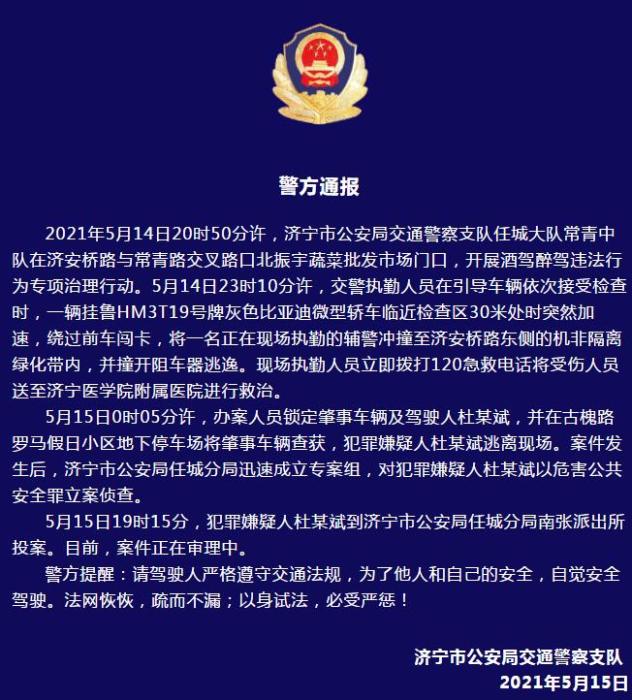最新要闻
- 当前热门:用送的那块布擦镜片:小心眼镜被废!
- 观热点:60岁快递员意外猝死 快递公司回应:深感痛心 善后已达成一致
- 女子连刷10个差评商家找上门:不好吃你天天来干嘛 谁生活容易啊
- 【世界报资讯】果粉入手一加Ace 2:开20个应用不杀后台 苹果开3个应用就不行了
- 80后回忆的“均瑶牛奶”公司进军新能源车:首款纯电SUV云兔来了 莆田生产
- 《原子之心》冰箱诺拉全九国语言配音:怎么没日语?
- 粉丝发现周深自用手机是iQOO 11 Pro传奇版:5米开外就能看到
- 电动两轮车总是骑半路就没电?这5种错误充电习惯赶快纠正
- 世界今头条!男子酷爱嚼槟榔:最终确诊舌癌
- 【报资讯】免费的ChatGPT意外断网 国内伪装自主的AI露馅了
- 世界焦点!今日山水一程三生有幸是形容爱情的吗_山水一程三生有幸
- 环球最资讯丨俞敏洪说想给董宇辉在北京买套房子 这话我听着耳熟
- 消息!魅族20未发先火!1元超前预订7小时订单破10万
- 世界热讯:研究称果糖或能导致老年痴呆:专家建议少食用
- 全球热议:旅日大熊猫香香坐顺丰飞机到家!1个月后与公众见面
- 环球视讯!成都一公司面试需填芝麻信用分 网友热议
手机

iphone11大小尺寸是多少?苹果iPhone11和iPhone13的区别是什么?

警方通报辅警执法直播中被撞飞:犯罪嫌疑人已投案
- iphone11大小尺寸是多少?苹果iPhone11和iPhone13的区别是什么?
- 警方通报辅警执法直播中被撞飞:犯罪嫌疑人已投案
- 男子被关545天申国赔:获赔18万多 驳回精神抚慰金
- 3天内26名本土感染者,辽宁确诊人数已超安徽
- 广西柳州一男子因纠纷杀害三人后自首
- 洱海坠机4名机组人员被批准为烈士 数千干部群众悼念
家电
环球今热点:[Java基础]自动装箱与自动拆箱--为什么整型比较必须用equals?
偶然在项目里看到了下面这行代码,大家觉得这个if判断会存在什么问题吗?
if (129 == StatusEnum.OK.getCode()) {//其中OK是Integer code =129 System.out.println("ok");}枚举定义如下:
 (资料图片)
(资料图片)
@Getterpublic enum StatusEnum { OK(129, "ok"), ERROR(0, "error"), ; private Integer code; private String desc; StatusEnum(Integer code, String desc) { this.code = code; this.desc = desc; }}在看这个问题前,我们先了解一下 自动装箱、自动拆箱
自动装箱、自动拆箱
1.定义
- 自动装箱:自动将基本数据类型转换为封装类型
- 自动拆箱:自动将封装类型转换为基本数据类型
关于数据类型,Java中定义了4大类基础的数据类型及其对应的封装类型
- 整数:byte、int、short、long
- 浮点数:float、double
- 字符类型:char
- 布尔类型:boolean
其对应关系如下:
| 基础类型 | 封装类型 |
|---|---|
| byte | Byte |
| int | Integer |
| short | Short |
| long | Long |
| float | Float |
| double | Double |
| char | Char |
| boolean | Boolean |
2.如何使用
使用起来非常简单,当=两端的类型分别是基础类型和其对应的封装类型时就会进行自动装箱或拆箱。
// 自动装箱Integer a = 100;// 自动拆箱int b = a;3.实现原理
- 自动装箱:Java编译器为我们自动执行了
Integer.valueOf(int i),这是Integer提供的静态方法(Static Method);
/** * Returns an {@code Integer} instance representing the specified * {@code int} value. If a new {@code Integer} instance is not * required, this method should generally be used in preference to * the constructor {@link #Integer(int)}, as this method is likely * to yield significantly better space and time performance by * caching frequently requested values. * * This method will always cache values in the range -128 to 127, * inclusive, and may cache other values outside of this range. * * @param i an {@code int} value. * @return an {@code Integer} instance representing {@code I}. * @since 1.5 */public static Integer valueOf(int i) { if (i >= IntegerCache.low && i <= IntegerCache.high) return IntegerCache.cache[i + (-IntegerCache.low)]; return new Integer(i);}- 自动拆箱:Java编译器为我们自动执行了
Integer.intValue(int i),这是Integer提供的实例方法方法(Instance Method);
/** * Returns the value of this {@code Integer} as an * {@code int}. */public int intValue() { return value;}4.优点和缺点
通常引入新的解决方案的同时,也会引入新的问题,自动装箱、自动拆箱也不例外。
1.优点
基础数据类型只能满足最基础的数据使用,封装类型为我们提供了许多高级的使用场景。以String为例它为我们提供了很多字符串的查找、拼接、大小写转换等方法(见下图)。而自动装箱、自动拆箱在不影响我们日常使用的情况下让我们更灵活的在基础和封装类型中切换。
2.缺点
1. NullPointException由于自动拆箱时使用的Integer.intValue(int i)是实例方法,使用时需要Integer的实例存在才行,否则会产生NullPointException。例子如下:
Integer i = null;boolean eq = 5 == i;//此处会抛出NullPointException2. 缓存自动装箱时使用了Integer.valueOf(int i),而在待装箱值i在IntegerCache缓存范围[-128, 127]内时会优先使用缓存的Integer对象。具体如下:
public static Integer valueOf(int i) { if (i >= IntegerCache.low && i <= IntegerCache.high) return IntegerCache.cache[i + (-IntegerCache.low)]; return new Integer(i);}我们看下下面这个例子:
int i = 127;Integer one = I;Integer two = I;System.out.println(one == two);//进行地址比较System.out.println(one.equals(two));//进行值比较i=127时输出结果如下:
truetrue
i=128时输出结果如下:
falsetrue
为什么不同的int装箱后的==比较结果不一样?自动装箱的出来的对象,一般会默认为new构造出来的,两次自动装箱的对象应该是不同的对象,而整型的比较一般默认是进行值比较。
由于int在经过自动装箱时会使用[-128, 127]范围内的缓存对象,导致结果超出预期。
所以在使用自动装箱和自动拆箱时,大家要注意其背后的原理。
在了解了Integer Cache后,我们再看下文章开头提到的整型比较:
if (0 == StatusEnum.OK.getCode()) {//其中OK是Integer System.out.println("ok");}可以简化为下面的例子
System.out.println(127 == Integer.valueOf(127));System.out.println(Integer.valueOf(127) == Integer.valueOf(127));System.out.println(128 == Integer.valueOf(128));System.out.println(Integer.valueOf(128) == Integer.valueOf(128));System.out.println(129 == Integer.valueOf(129));//I比较IntegerSystem.out.println(Integer.valueOf(129) == Integer.valueOf(129));//Integer比较Integer结果如下:
truetruetruefalse
具体分析如下:
System.out.println(127 == Integer.valueOf(127));// true,int 127的自动装箱会使用缓存,但是最终拆箱成int和int比较System.out.println(Integer.valueOf(127) == Integer.valueOf(127));// true,int 127的自动装箱会使用缓存对象,缓存对象相同System.out.println(128 == Integer.valueOf(128));// true,int 128的自动装箱会使用缓存,但是最终拆箱成int和int比较System.out.println(Integer.valueOf(128) == Integer.valueOf(128));// false,int 128的自动装箱不使用缓存,对象和对象比较不一样大家可以看出以下结论:
- 当基本数据类型与封装类型进行
==比较时,会进行拆箱比较; - 封装类型与封装类型进行``==```比较时,等同于对象比较对象,会进行对象地址比较;
- Integer的自动装箱会为
[-128, 127]范围内的值优先使用缓存对象
所以整型在进行比较时,大家不要使用==进行比较,参考下面Java开发手册(嵩山版)2020.08修订1.7.0截取内容:
- 【强制】所有整型包装类对象之间值的比较,全部使用 equals 方法比较。说明:对于 Integer var = ? 在-128 至 127 之间的赋值,Integer 对象是在 IntegerCache.cache 产生,会复用已有对象,这个区间内的 Integer 值可以直接使用==进行判断,但是这个区间之外的所有数据,都会在堆上产生,并不会复用已有对象,这是一个大坑,推荐使用 equals 方法进行判断。
5. 延伸问题:
为什么JDK设计时,Integer的自动装箱会为[-128, 127]范围内的值优先使用缓存对象?
-
![环球今热点:[Java基础]自动装箱与自动拆箱--为什么整型比较必须用equals?](http://www.dianxian.net/uploadfile2022/0610/20220610022030460.jpg)
环球今热点:[Java基础]自动装箱与自动拆箱--为什么整型比较必须用equals?
偶然在项目里看到了下面这行代码,大家觉得这个if判断会存在什么问题吗?if(129==StatusEnum OK getCo...
来源: -

【天天新要闻】Detecting glass in Simulataneous Localisation and Mapping
摘要:许多现代建筑设计都以大玻璃面板为主要室内装饰元素之一,例如大玻璃墙。由于玻璃面板的透明性,...
来源: -

天天热文:贝叶斯与卡尔曼滤波(2)--连续随机变量的贝叶斯公式
贝叶斯与卡尔曼滤波(2)--连续随机变量的贝叶斯公式离散型变量的贝叶斯公式:$$P(X=x|Y=y)= frac{P(Y=...
来源: -

环球今热点:[Java基础]自动装箱与自动拆箱--为什么整型比较必须用equals?
【天天新要闻】Detecting glass in Simulataneous Localisation and Mapping
天天热文:贝叶斯与卡尔曼滤波(2)--连续随机变量的贝叶斯公式
当前热门:用送的那块布擦镜片:小心眼镜被废!
观热点:60岁快递员意外猝死 快递公司回应:深感痛心 善后已达成一致
女子连刷10个差评商家找上门:不好吃你天天来干嘛 谁生活容易啊
【世界报资讯】果粉入手一加Ace 2:开20个应用不杀后台 苹果开3个应用就不行了
80后回忆的“均瑶牛奶”公司进军新能源车:首款纯电SUV云兔来了 莆田生产
信息:Qt调用摄像头一,基础版
k8s多节点二进制部署以及Dashboard UI
记住这12个要点,你也能打造出让HR和技术主管前一亮的前端简历
《原子之心》冰箱诺拉全九国语言配音:怎么没日语?
粉丝发现周深自用手机是iQOO 11 Pro传奇版:5米开外就能看到
电动两轮车总是骑半路就没电?这5种错误充电习惯赶快纠正
世界今头条!男子酷爱嚼槟榔:最终确诊舌癌
【报资讯】免费的ChatGPT意外断网 国内伪装自主的AI露馅了
守护安全|AIRIOT城市天然气综合管理解决方案
0x03_My-OS在实体机上面运行
每日播报!【算法训练营day53】LeetCode1143. 最长公共子序列 LeetCode1035. 不相交的线 LeetCode53. 最大子序和
快讯:两数之和、三数之和、四数之和(双指针)
世界焦点!今日山水一程三生有幸是形容爱情的吗_山水一程三生有幸
环球最资讯丨俞敏洪说想给董宇辉在北京买套房子 这话我听着耳熟
消息!魅族20未发先火!1元超前预订7小时订单破10万
世界热讯:研究称果糖或能导致老年痴呆:专家建议少食用
全球热议:旅日大熊猫香香坐顺丰飞机到家!1个月后与公众见面
环球视讯!成都一公司面试需填芝麻信用分 网友热议
每日信息:100亿级订单怎么调度,来一个大厂的极品方案
[学习笔记]Rocket.Chat业务数据备份
记录--uni-app实现京东canvas拍照识图功能
世界快资讯:Java+Jquer实现趋势图
全球最新:温州特斯拉事故20年驾龄司机仍昏迷:特斯拉回应称难过 重申全力配合调查
环球今热点:Xbox游戏将登陆任天堂主机 网友质疑:NS能带动吗?
世界微资讯!场面爆笑!外国人为开比亚迪开始学中文:难为“小迪”了
即时看!音悦台将回归登热搜!主体公司已成老赖:累计被执行1376万
世界视讯!什么是经营贷什么是消费贷?浅谈二者区别
puppet安装使用踩坑笔记
箭头函数详解
TypeScript 入门自学笔记 — 接口的使用(六)
快资讯丨Python关于异常处理的教程
天天观察:scrollView 嵌套 recyclerview 时 BaseQuickAdapter 九宫格图片拖拽到底部删除
14年老牌网站 音悦台要回归了!官方称很快就要内测
每日快看:杭州发现鱼类新物种苕溪鱲:通体散发宝蓝色金属光泽
当前播报:爱奇艺认错 恢复会员投屏!上海消保委:愿意为消费者叫板
是懂玩家的!《原子之心》为机器人姐妹花开通ins账号
焦点观察:张小泉公开一防菜刀断裂专利 这次拍蒜不断了?
当前最新:中小企业如何有效应对计算资源的弹性变化需求?
热消息:来一波骚操作,Java内存模型
全球新消息丨Windows家庭版安装本地组策略编辑器【gpedit.msc】
Redis详解
当前焦点!@ResponseBody注解的作用
万马股份(002276.SZ):万马新能源充电桩的枪线已经自产 由万马专缆生产
精选!售10-20万元 蔚来整合猎豹工厂:新品牌“萤火虫”落户安徽
今日最新!冲刺IPO!一年狂赚7亿美元 中国跨境电商神话靠啥吸粉?
乐视被强制执行100万:没版权擅自转播了优酷综艺
男子网购iPhone 14开箱发现是iQOO 商家赔50元优惠券被拒
当前动态:曾致135人死亡 印度断桥事故调查报告出炉:钢索严重腐蚀
0x02_My-OS操作系统里的helloworld
天天新资讯:iptables防火墙
世界热议:万物皆可集成资源包!低代码集成系列一网打尽
天天快播:通过例子学习粒子群优化算法
全球速讯:暂时性死区以及函数作用域
全球观察:祸不单行!美国俄亥俄州又现爆炸:30公里外都见到蘑菇云
天天新消息丨2.8K OLED屏+10核CPU 小米首款翻转本降价1000元起
售价高达4199元!森海塞尔HD 660S2开放式动圈耳机正式开售
【世界独家】【算法训练营day52】LeetCode300. 最长递增子序列 LeetCode674. 最长连续递增子序列 LeetCode718. 最长重复子
开心档之Bootstrap4 自定义表单
速读:标准语言的重要性_语言的重要性
环球热讯:《蚁人3》等漫威大片中国吃瘪!国人为国产电影买单 《流浪地球2》等降维打击
世界微速讯:直播预告 | 嵌入式BI如何将数据分析真正融入业务流程
当前快报:(数据库系统概论|王珊)第六章关系数据理论-第一节:为什么要研究关系数据理论
世界播报:C# 利用FluentFTP实现FTP上传下载功能
天天通讯!NBA中国与蚂蚁集团开启全面战略合作:支付宝能看球了!
比亚迪百万级超跑 仰望U9路试谍照首次曝光:变好看了
环球播报:特斯拉中国工厂提速:2023新款Model 3来了 内饰大升级
每日精选:云业务成本的组成与管理趋势
世界快消息!火山引擎数智平台ByteHouse入围稀土掘金《Top10 年度创新产品》
天天快资讯丨前端开发页面性能优化法则
每日热门:爱奇艺修改会员投屏限制后:优酷腾讯尚未跟进 默不作声
快资讯:全球首款!努比亚Pad 3D内置AI引擎:实现全场景3D应用
每日资讯:抢在EOS R1前发布:佳能EOS R5 Mark II或将第二季度亮相
快讯:张小泉菜刀拍蒜断成两截被吐槽 厂家回应:硬度越大越脆
热效率44.26%!吉利新雷神电混发动机量产下线:终于换4缸了
热点!咽字组词_咽的组词有哪些
欢喜来逗阵结局谁和谁一起了?欢喜来逗阵演员名单
翡翠玉镯戴久了有什么变化?翡翠玉镯怎么样辨别真假?
青铜时代是哪个朝代?青铜时代介绍
【天天播资讯】一台不容错过的Java单元测试代码“永动机”
全球动态:火爆全球的ChatGPT是什么?
环球要闻:数据结构刷题2023.02.21小记
若依框架的MVC各层功能解释
全球观速讯丨借力英特尔® Smart Edge,灵雀云 ACP 5G 专网解决方案获得多维度优化加速
难念的经是哪个电视剧主题曲?难念的经粤语谐音歌词
电视剧小爸爸插曲有哪几个?电视剧小爸爸插曲大全
三星4521打印机怎么连接手机?三星4521打印机卡纸怎么拿出来?
SBSetting怎么打开?sbsettings怎么安装到手机?
万能遥控器怎么使用?万能遥控器怎么配对机顶盒?
三星G810上市价格是多少?三星G810手机参数
数字电视遥控器怎么配对?数字电视遥控器没反应怎么办?
女生熬夜打游戏角膜上皮脱落!医生称严重需手术换角膜:一定要控制
今日要闻!后路堵死!苹果关闭iOS 16.3验证通道





